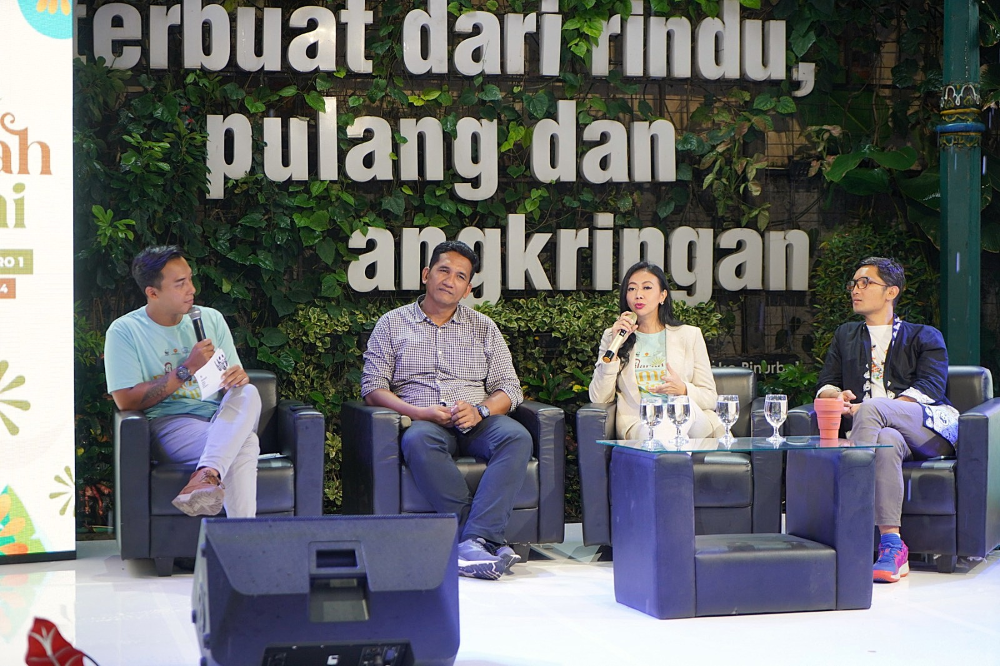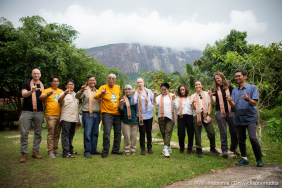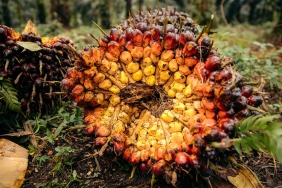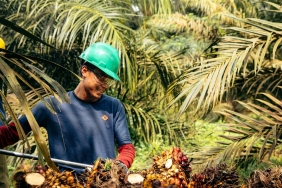GELARAN RAMAH BUMI: LIFESTYLE TRANSFORMATION IN SUPPORT OF RESPONSIBLE CONSUMPTION WITH WWF-INDONESIA
Gelaran Ramah Bumi, a public event held on November 30, 2024, at Teras Malioboro 1, Yogyakarta, showcased the undeterred enthusiasm of visitors despite the drizzling rain. Initiated by WWF-Indonesia in collaboration with the Earth Hour Yogyakarta community, the event promoted the theme of responsible consumption of sustainable commodities, particularly palm oil derivative products. Through this event, the public was encouraged to recognize the importance of supporting sustainable products that boost the economy and preserve the environment. By involving various stakeholders, including companies, Micro, Small, and Medium Enterprises (MSMEs), environmental communities, and the government, the Gelaran Ramah Bumi aligns with the twelfth Sustainable Development Goal (SDG), which emphasizes responsible consumption and production.
This event highlighted the importance of meeting basic human needs without compromising environmental sustainability. In the modern era, excessive consumption and production patterns have become significant challenges, substantially impacting various sectors, including the environment. Gelaran Ramah Bumi was a concrete step toward encouraging fundamental changes in public behavior. The strategies employed at this event not only urged people to shop wisely but also helped them understand the impact of every consumption choice they made. By educating the public on the significance of sustainability, it is hoped that they can meet present needs without sacrificing the quality of life for future generations.
Sustainable Commodities Discussion with Asri Welas
One of the highlights of the event was a talk show titled NOTICE ( Sustainable Commodities Talks), aimed at spreading knowledge and best practices to the broader community. The speakers included Angga Prathama Putra (WWF-Indonesia), Asri Welas (Artist and Member of Nature Warrior WWF-Indonesia), and Hendry Saputra (Environmental and Forestry Agency of Yogyakarta). They discussed various sustainable products, including certified sustainable palm oil derivatives (such as cooking oil, margarine, chocolate, etc.) and recycled textiles.
The discussion touched on the low public awareness of eco-friendly products and the small actions consumers can take to support their use. It also explained how eco-friendly products contribute not only to nature conservation but also to supporting the local economy. One key point was the importance of sustainable commodities, including sustainable palm oil. With increased awareness and willingness among consumers to use and purchase sustainable products, it is expected to encourage producers to commit further and create a wider variety of sustainable products.
Full Support Through Various Companies and MSMEs
WWF-Indonesia has provided training and assistance in preparing Sustainability Action Plans to 21 companies and MSMEs from various sectors based in Yogyakarta and Solo. To honor the companies and MSMEs that completed their Sustainability Action Plans, WWF-Indonesia awarded certificates of appreciation to those committed to using sustainable palm oil raw materials. This recognition not only serves as an acknowledgment but also as an encouragement for other businesses to follow suit in creating a more eco-friendly business ecosystem.
This commitment has also received support from the Yogyakarta government, which has taken steps to pioneer the sustainable procurement of goods and services in Indonesia. Since its launch in 2019, the program has included training, support for producers, and promotion of sustainable products, representing a significant step forward in promoting the principles of sustainability.





